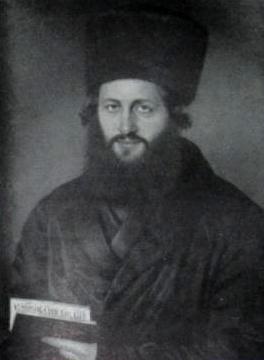“We will build sheep pens for our livestock here and cities for our children.” (BaMidbar 32:16)
by Rabbi Yair Hoffman for the Sfas Tamim Foundation
The tribes of Gad and Reuven, were certainly on a high spiritual level. They were part of the Dor De’ah, the greatest generation that ever lived. And yet, on a subtle level, they were driven by an apparent greed for material possessions. After having arrived at the fertile lands directly east of Eretz Yisroel they expressed a desire to settle there instead. Moshe, at first, suspected that they wished to let their brethren do battle alone for Eretz Yisroel, and accused them of such.
They clarified:
“No, Chas v’Shalom – this is what we wish to do,” they said to Moshe. “We will build sheep pens for our livestock here and towns for our children. Then we will go quickly at the very head of the army and fight until the land is conquered and apportioned. Only then will we return to our homes.”
Moshe, then corrected their order, emphasizing the importance of their children’s safety and future before their material possessions. He urged them to first build “towns for your children,” and then, and only then, to build “pens for your sheep.”
The Ksav Sofer asks why Moshe Rabbeinu found it necessary to say, “Make sure you keep your word.” Why was this needed? If they said they would do it, why shouldn’t we assume that they would?
The Ksav Sofer answers that those whose priorities are not straight and over-emphasize the value of money are not to be trusted to follow up and do what they say. The greed for money can blind them. Moshe Rabbeinu thus warned them with a double-warning.
This is the basic implication of the Ksav Sofer. But perhaps there is more here than at first meets the eye.
Moshe Rabbeinu is also providing Klal Yisroel with a means of rectifying the incorrect perspective that they had previously possessed – even on that subtle level. He reversed the order to both teach and enable them to take active steps that would imbue them with the correct perspective. Building towns for their children will actively imbue them with the correct perspective first. The Sefer HaChinuch (Mitzvah 16) explains the idea of, “achar haP’ulos nimshachim halevavos – the hearts follow the implementation of actions.” This idea is also found in chapter 23 of the Mesilas Yesharim – that slowly and slowly the outer actions do effect the inner thoughts.
This is the model that we must take to ensure that we follow in the ways of Hashem. It should also be noted that this is one of the defining characteristics of Mitzvos. Judaism has always felt that concepts and ideas are not enough – they must be accompanied by action.
For example, a person who wishes to become a master musician cannot merely peruse the musical notes of a concerto but must actually practice music. Hours and hours of practice are necessary. By the same token, a student of the martial arts cannot become a proficient fighter merely by reading a karate instruction manual. Years and years of practice are required for the proficiency and expertise to develop.
The prophets of Israel speak of the noble ideals of universal peace, brotherhood, seeking truth and justice, and walking humbly before G-d. They speak of the notion of hakaras haTov – recognizing the good that one has done for them. But Judaism requires that these noble ideas be put into action through the vehicle known as Mitzvah.
Thus, there is a commandment to give charity. There is a commandment to recite a short formula thanking Hashem for the bread that we have consumed. The idea of integrity and truth, the seal fo Hashem Himself is no different. This is why Moshe Rabbeinu reversed the order.
To subscribe to a weekly parsha sheet about emes – send the word “subscribe” to [email protected]











